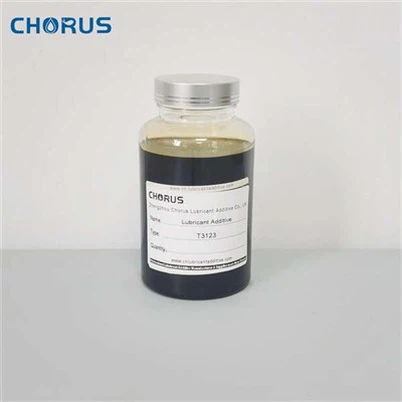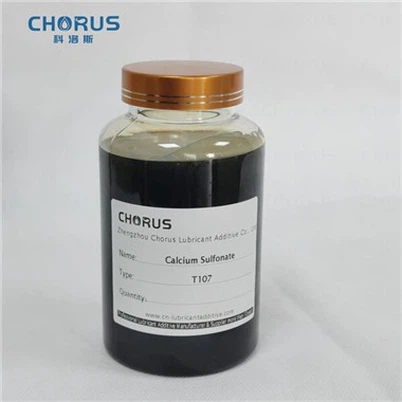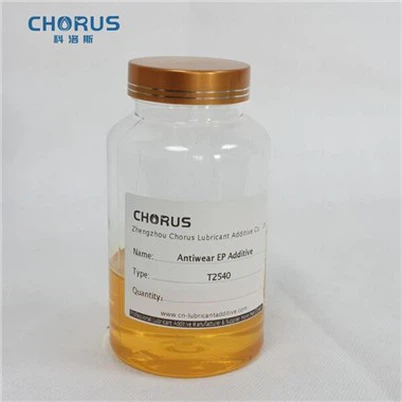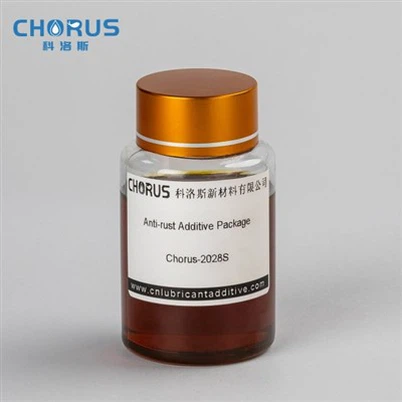Seven Major Lubricant Additives in Hydraulic Oil
Leave a message
Hydraulic fluid plays a role in energy transmission, lubricity, cooling and anti-corrosion in the hydraulic system of construction machinery, machine tools and aviation. In order to satisfy the demands of different performances, adding multi functional additives in the hydraulic oil is an important way to improve stability and life service.
- Anti-oxidation additive: delay the aging and deterioration of oil products.
Antioxidant is used for improving the anti-oxidation performance and prolong oil service life, is also called oxidation inhibitor.
The engine oil in the operation process will undergo a series of chemical changes, like oxidation, aggregation and decomposition because of the oxygen in the air, by-products by fuel combustion, high temperature and metals on the friction surfaces. This will lead to engien bearing cirrosion, piston ring adhesion, formation of paint film and sludge, increased oil viscosity and decreased thermal efficiency, which influence the equipment normal operation. To improve the oxidation stability of engine oil, antioxidants must be added.
Zinc Dioctyl Primary Alkyl Dithiophosphate (ZDDP) has a good anti-oxidation, extreme pressure anti-wear performance and hydrolytic stability. Used in the high grade engine oil, it can inhibit oxidation, prevent oil viscosity increasing and cam follower wear efficiently. And ZDDP can also be used in the hydraulic fluid.
Butylated hydroxytoluene Antioxidant T501 has a good anti-oxidation performance and performs well below 100 ℃. It is used in industrial gear oil, anti-wear hydraulic oil, turbine oi and transformer oil.

- Antiwear additive:reduce metals wear and friction
In the process of metal cutting, when the load increases to a certain extent, the oil film on the metal surface will be completely extruded, and the metal surface contact directly. Under such boundary lubrication conditions, EP antiwear additive begins to function effectively. The active components in the EP additive can react with metal under a certain temperature and form a chemical film to separate and lubricity the metal surface.
These EP anti-wear additive common contains sulfur, phosphorus, chlorine and other elements. In the high temperature, these elements will form a corresponding molecular film to prevent the connection between metals to avoid welding and scraping.
For example, zinc dioctyl alkyl dithiophosphate T203 can react with iron under high temperature and form a protective film. Phosphorus containing antiwear additive can form a highly plastic phosphate film in a low temperature and it's helpful to improve surface flatness.
- Anti-rust additive: prevent metal surface from corrosion
Rust is a compound of oxides and hydroxides formed on the metal surface due to the action of oxygen and water. Sometimes, it also contains carbonates formed by the connection with air and carbon dioxide.
To avoid rust, one of the most common method is using anti-rust oil.When the oil product with rust preventive additives connects with metal, the polar group in the anti-rust additive molecular has a high absorption force and form a tight monomolecular or multi-molecular protective layer on the metal surface to prevent the corrosion medium connection with metals.
Dodecenylsuccinic Acid T746 can form a strong oil film on the metal surface to prevent the metals from corrosion. It's suitable for turbine oil, hydraulic and gear oil.
- Viscosity improver Iindex: promote the viscosity temperature performance
The viscosity of oil decreases with temperature increases. Viscosity Index (VI) is used to measure the viscosity change degree with temperature. The VI of oil is bigger, the viscosity change degree with temperature is smaller.
Due to the viscosity index of mineral oil is usually at 96-100, therefore, when produce multi-grade internal combustion engine oil with excellent viscosity temperature performance and other high index industrial lubricant, it had better add VII or use synthetic lubricating oil.
The internal combustion engine oil, gear oil and hydraulic oil formulated by VII have excellent low temperature starting performance and high temperature lubricity. It can satisfy the multipile viscosity grades and are suitable for use all year round.
PMA T602HB in Chorus is a typical VII that can promote the hydraulic oil viscosity index from 90 to 140, which is helpful to guarantee the smooth operation of equipment in a wider temperature range.
- Pour point depressant (PPD): promote the liquidity under low temperature
In low temperature, the paraffin component in hydraulic fluid may precipitate and cause solidification. PPD can decrease the pour point by changing the shape and size of paraffin crystal. The common used pour point depressant is T248, it can decrease the hydraulic pour point from -10 ℃ to -40℃ to ensure the normal operation of equipment in cold environment.
- Demulsifier: promote oil and water separation
The water is mixed into the hydraulic system, it may form emulsion, which influences the lubricity and lead to corrode. Demulsifier can damage the oil-water interface film and accelerate water deposit and separation.
For example, the sulfonate demulsifier has a good effect that can shorten the oil-water separation time from 30 mins to 5mins to maintain the system stability.
- Anti-foam additive: inhibit the formation and accelerate the elimination of foam.
In the circulation of hydraulic fluid, it's easily to mix with air and form foam, which influences the system stability and lead to cavitation. Anti-foam oil additive can reduce the lubricant oil surface tension and make the foam break up quickly.
AF-3 is the common used antifoam in chorus, the adding amount is usually at 0.001%-0.01%. That's beneficial to decrease the generation of foam.
After adding the antiform additive, AF-3 can improve the stability of hydraulic system pressure control.
The improvement of hydraulic fluid depends on various additives cooperation.
Anti-wear additives, anti-rust additives, anti-oxidation, defoam additives, VII, PPD, and demulsifier play their role in reduce wear, prevent corrosion, prolong aging, maintain viscosity and improve liquidity.
Choose and proportion the lubricant additives reasonably can not prolong the life span of hydraulic system, but also reduce maintain cost and improve the operation efficiency.






